第90章 LETTER 8(32)
Indeed it never could;too much time having been lost in waiting for the option of Philip,and the suspension and cessation having been brought before the council rather as a measure taken,than a matter to be debated.If your lordship,or any one else should judge,that,in such circumstances as those of the confederacy in the beginning of one thousand seven hundred and twelve,the latter measure ought to have been taken,and the Gordian knot to have been cut rather than to suffer a mock treaty to languish on,with so much advantage to the French as the disunion of the allies gave them;in short,if slowness,perplexity,inconsistency,and indecision should be objected,in some instances,to the queen's councils at that time;if it should be said particularly,that she did not observe the precise moment when the conduct of the league formed against her,being exposed to mankind,would have justified any part she should have taken (though she declared,soon after the moment was passed,that this conduct had set her free from all engagements)and when she ought to have taken that of drawing,by one bold measure,her allies out of the war,or herself out of the confederacy,before she lost her influence on France:if all this should be objected,yet would the proofs brought to support these objections show,that we were better allies than politicians;that the desire the queen had to treat in concert with her confederates,and the resolution she took not to sign without them,made her bear what no crowned head had ever borne before;and that where she erred,she erred principally by the patience,the compliance,and the condescension she exercised towards them,and towards her own subjects in league with them.Such objections as these may lie to the queen's conduct,in the course of this great affair;as well as objections of human infirmity to that of the persons employed by her in the transactions of it;from which neither those who preceded,nor those who succeeded,have,I presume,been free.But the principles on which they proceeded were honest,the means they used were lawful,and the event they proposed to bring about was just.Whereas the very foundation of all the opposition to the peace was laid in injustice and folly:for what could be more unjust,than the attempts of the Dutch and the Germans,to force the queen to continue a war for their private interest and ambition,the disproportionate expense of which oppressed the commerce of her subjects,and loaded them with debts for ages yet to come?a war,the object of which was so changed,that from the year one thousand seven hundred and eleven she made it not only without any engagement,but against her own,and the common interest?What could be more foolish;you will think that I soften the term too much,and you will be in the right to think so:what could be more foolish,than the attempt of a party in Britain,to protract a war so ruinous to their country,without any reason that they durst avow,except that of wreaking the resentments of Europe on France,and that of uniting the Imperial and Spanish crowns on an Austrian head?one of which was to purchase revenge at a price too dear;and the other was to expose the liberties of Europe to new dangers,by the conclusion of a war which had been made to assert and secure them.
I have dwelt the longer on the conduct of those who promoted,and of those who opposed,the negotiations of the peace made at Utrecht,and on the comparison of the measure pursued by the queen with that which she might have pursued,because the great benefit we ought to reap from the study of history,cannot be reaped unless we accustom ourselves to compare the conduct of different governments,and different parties,in the same conjunctures,and to observe the measures they did pursue,and the measures they might have pursued,with the actual consequences that followed one,and the possible,or probable consequences,that might have followed the other.By this exercise of the mind,the study of history anticipates,as it were,experience,as I have observed in one of the first of these letters,and prepares us for action.